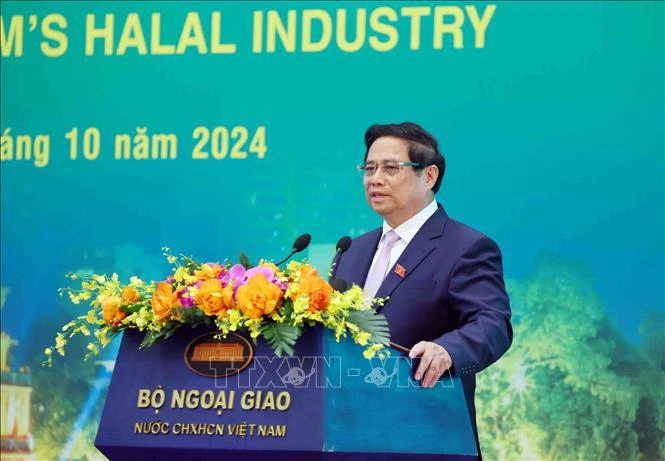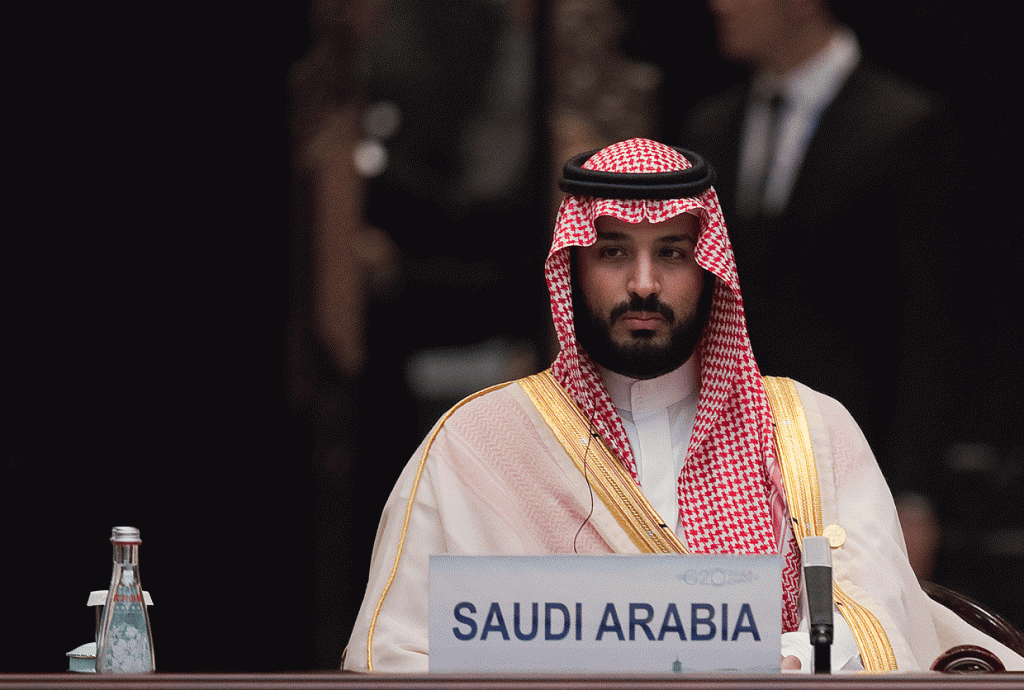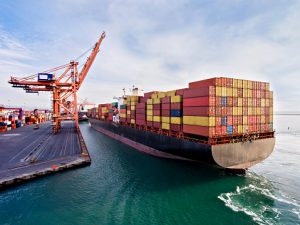
Hanoi (VNA) – Vietnam aims to turn its Halal industry into a strong economic sector, positioning the country as an indispensable destination on the global Halal map and an important link in the supply chain of Halal products and services worldwide, Prime Minister Pham Minh Chinh stated at a conference held in Hanoi on October 22.
The conference, co-hosted by the Ministry of Foreign Affairs, the Ministry of Science and Technology, and the Ministry of Agriculture and Rural Development, aimed to create substantive changes and effectively implement the plan on strengthening international cooperation to build and develop Vietnam’s Halal industry by 2030. It was the first national-level and also biggest Halal-themed event, attracting about 600 online and in-person participants, including over 50 delegations of international organisations, foreign Halal businesses, and major Halal markets.
PM Chinh highlighted the significance of the event, which contributes to guiding the development strategy for Vietnam’s Halal industry, opening up new business and investment opportunities, and promoting economic, cultural and people-to-people connections between Vietnam and other countries through Halal products and services.
He stressed that Vietnam has three important bases for developing the Halal industry, including political and social stability, growing economic potential and scale; the expanding foreign relations and international economic links; geographical advantages and favourable natural conditions for joining more deeply in the supply chains of Halal products and services, experience in and contributions to ensuring global food security, as well as advantages for tourism, including Halal tourism.
Vietnam aims to make Halal “a significant economic cooperation component, a new pillar, and a new motivation” for its relations with other countries, he said, noting that it views Halal as a “golden opportunity” for Vietnamese businesses to enhance their production capacity and effectively participate in the global Halal market.
The country is committed to developing the Halal industry based on the respect for cultural values, especially human culture, and the value of peaceful coexistence, thus demonstrating its contribution and sense of responsibility towards the building of a peaceful, diverse, and harmonious world of common development, he went on.
To capitalise on Vietnam’s advantages and promote international cooperation in the industry, the PM emphasised the need to promote cooperation in sharing information and experiences; boost negotiations and signing of agreements, memorandums of understanding on cooperation, and those on mutual recognition regarding Halal certification; encourage regional and international partners to invest and do business in Vietnam; increase the introduction and promotion of Vietnamese Halal products, services, and brands along with the opening of markets; and foster people-to-people exchanges, cultural cooperation, and mutual understanding.
At the conference, domestic and international delegates spoke highly of the country’s potential, strengths, and strategy for engaging in the global Halal market.
Chairman of Halal India Mohamed Jinna said Vietnam is facing a “bright future” as it approaches an opening global Halal market where Halal certification will serve as a gateway for it to access a market that spans various industries such as food, pharmaceuticals, cosmetics, fashion, and tourism.
For his part, Secretary General of the Standards and Metrology Institute for Islamic Countries (SMIIC) Ihsan Ovut lauded Vietnam’s dynamic economic development and its potential for developing the Halal tourism, food, cosmetics, and pharmaceuticals sectors.
Meanwhile, Chairman of the Gulf Cooperation Council (GCC) Accreditation Centre (GAC) Moteb Al-Mezani perceived that Vietnam’s policy of developing the Halal industry matches the Gulf countries’ interests and orientations for developing cooperative relations.
Addressing the event, Minister of Science and Technology Huynh Thanh Dat emphasised Vietnam’s commitment to continuing collaboration with international partners to enhance the standardisation of production processes and improve the country’s Halal certification capacity to meet stringent requirements of the international market./.



